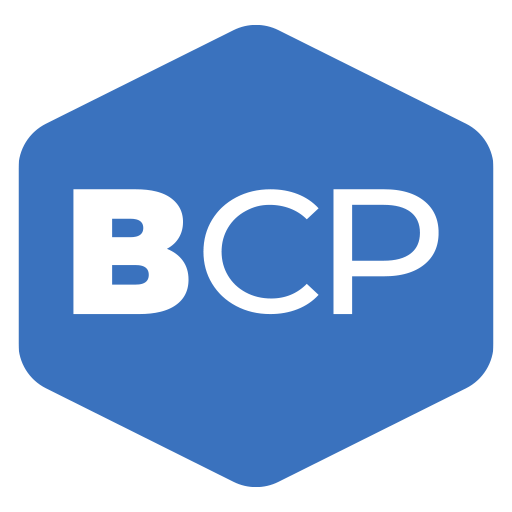Modern customers have more options to purchase a car than ever before. Customers can shop, compare, and even buy, completely online. Their car reminds them when it’s time for service, and they can make that appointment online, too. The customer experience can be a big competitive differentiator, and dealerships are scrambling to keep up with their customers’ needs.
To manage the complexities of customer relations, many dealerships are turning to using one of two options: automotive call centers or Business Development Centers (BDC). Understanding the pros and cons of each is essential.
Summary
What Automotive Call Centers Do
An automotive call center typically has virtual or live receptionists who field inbound phone calls from existing and potential customers. It can be on-site, but many dealerships outsource call centers to offshore locations. A call center might:
- Set appointments, such as test drives or service appointments
- Route customer complaints or support needs to the right department
- Collect overdue payments
- Send out automated, post-sale or post-service surveys
What Business Development Centers Do
BDCs take care of the same tasks as an automotive call center, but add even more capabilities. With the best BDCs, live, on-shore representatives don’t just answer calls and set service appointments, they proactively contact and form relationships with potential customers. In addition to what a call center does, they might also:
- Follow up with customers, confirming appointments and calling no-shows
- Immediately respond to customer inquiries 24/7 to convert leads into appointments
- Analyze and prioritize your inactive, loyalty, and other lists to unlock new opportunities
- Go beyond calls and leverage texts and emails to reach customers the way they prefer
What to Consider When Deciding Between an Automotive Call Center and a BDC
Automotive call centers and BDCs serve different purposes and have various pros and cons. The one that’s right for you depends on your needs.
Service Scope
Automotive call center services are specific: Responding to customer requests. When customers call in, it’s because they saw a car on the dealership website and want to do a test drive, need to make a service appointment, or have a complaint or request. The call center can resolve the request or route them to the correct department. By being responsive, automotive call centers can help increase customer satisfaction.
In comparison, a BDC not only covers what an automotive call center does – responding to inbound requests – it also takes a proactive approach to sales and customer relationship development. Agents pursue leads, call potential and current customers, and convert leads into sales. They’re trained in sales tactics like upselling, overcoming objections, auto telesales, and cross-selling. Their ongoing communication with customers drives conversions and loyalty.
Customer Lifecycle
The customer lifecycle begins when the customer first starts vehicle shopping through the sale, but also includes the relationship after they drive the vehicle off the lot, encompassing service and future buys – plus referrals to their social circles.
Automotive call center solutions are more focused on scheduling sales appointments and assisting customers with servicing needs. The interactions aim to be friendly and positive, but they are more like receptionists, and don’t engage in long-term conversations with customers the way that BDC agents do.
BDCs, on the other hand, are involved in the full customer lifecycle. They can not only book service and sales appointments, they also take care of prospecting. Agents contact website visitors via phone and email. They remind customers of appointments and follow-up with them. After a purchase is complete, they contact the customer with new promotional offers and reminders about services. All of this personalized attention drives dealership loyalty.
Technology Integrations
Call centers often manage huge volumes of calls by using technology like automotive call center voice assistants. The voice assistant, or virtual receptionist, lets customers find fast answers and helps dealerships route calls appropriately. They might also integrate with some of your existing technology, like your customer relationship management (CRM) software.
BDCs provide similar technology integrations, but also often have their own proprietary technology, like:
- Live inventory and video capabilities
- The ability to automatically sort, prioritize, and assign leads
- Automated alerts that help turn customers’ connected car alerts into appointments
- Track sales trends, demographics, and more to help managers determine future sales strategies
Cost Considerations
One benefit of automotive call centers is that they tend to be lower-cost. The use of offshore agents and more basic technology can keep pricing down, and a focus on inbound calls can help take some of the load off your team. But they probably won’t drive much sales growth.
The purpose of a BDC, on the other hand, is to drive growth through lead generation, better efficiency, and higher conversion rates and to provide a personalized experience that keeps customers coming back and making referrals. BDCs also often have flexible, tiered pricing so you can choose what you want, then scale your services as you grow.
Making the Final Decision Between an Auto Sales Call Center and a BDC
Ultimately, whether you choose a BDC or automotive call center depends on your needs. If you’re not concerned about lead generation or managing the entire customer lifecycle and only need a basic service to automate calls, an automotive call center may be the right choice. If increasing sales, better operational efficiency, happier advisors, and making data-informed decisions is important to you, a BDC may be what you need.
Get on the right path to better sales by scheduling a meeting with us today. Like our pricing, we’re flexible: You can book anywhere from 15 minutes to an hour, depending on your needs. We’ll help you assess the customer service and sales strategies you have in place, determine your objectives, and see what’s missing, so you can confidently make the right decision for your business.












